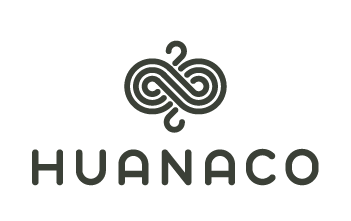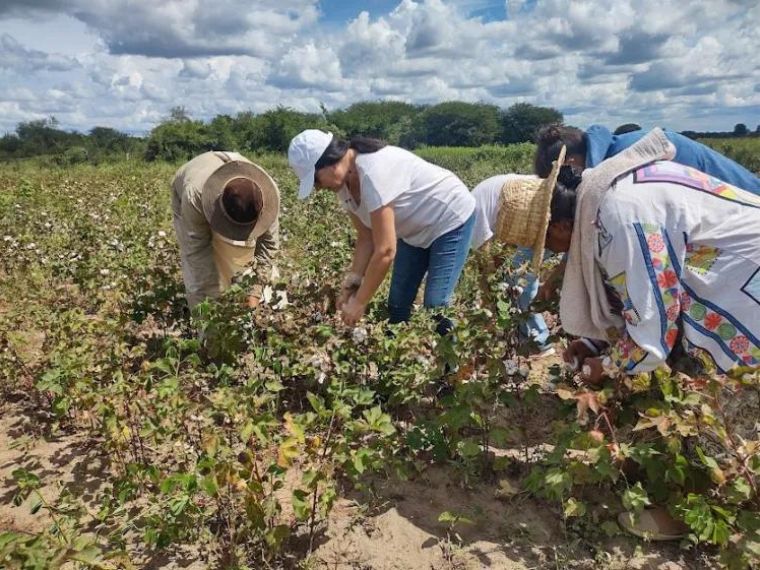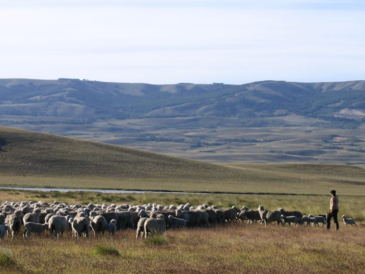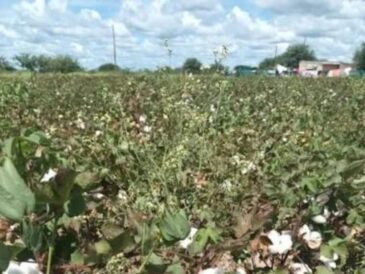Algodón de Frontera is agroecological cotton from NO¨OXONEC experience.
For the second consecutive year, we are part of the value chain of agroecological cotton production from family farming in the Argentine Gran Chaco.
Algodón de Frontera
This time, the fiber comes from the “NO¨OXONEC – Algodón de Frontera” experience, a project that is marking a milestone in the recomposition of productive systems damaged by the use of agrochemicals in the Qom communities of Pampa del Indio and Pcia. Roca and strengthening peasant-indigenous family agriculture currently in three other locations: J. J. Castelli, Las Palmas, and La Leonesa.
This agroecological cotton production experience is unprecedented and self-managed. The entire production process, which goes from sowing and growing the native seed to harvesting, processing, spinning, and textile design, is carried out in the province with local actors.
The greatest treasure these producers have, in their own words, is the native seed, preserved without genetic modification, which allows them, despite the challenges that arise, to restart the production cycle each year.
At HUANACO, we join this value chain, giving color to these yarns with natural dyes so that knitters from all over the world can enjoy this fiber that is so healthy for the skin, for the planet, and for local communities.
Our collection takes its name from this project, as a way to honor the work done by these families and continue adding value to this precious fiber.
What is “NO¨OXONEC – Algodón de Frontera”?
It is an experience that began in 2012, which has become an emblematic project addressing the recomposition of damaged productive systems and the promotion of food and cotton production in agroecological systems.
Its pillars are the commitment to peasant and indigenous family farming, biodiversity, food sovereignty, gender equality, and the preservation and revaluation of ancestral knowledge.
The project contemplates the entire cotton chain, from obtaining seeds itself to the production of roving, yarn, textiles, design, and manufacture of artisanal garments at the source.
Agroecological Systems
The concept of agroecology has been evolving over the years, and today there is a consensus that it is more than just ecological practices. Agroecology is a paradigm that promotes the design and management of economically viable, socially just, and environmentally sustainable agricultural production systems, characterized by greater socio-ecological resilience and aimed at strengthening the good life of the entire society.
Production systems that do not use chemical synthesis inputs or genetically modified organisms or are generated from gene editing are considered agroecological and gradually, comprehensively, and sustainably apply a series of principles that ensure the well-being of producers and soil healt.
Source (Spanish only) : https://www.argentina.gob.ar/sites/default/files/dnae_sagyp_marco_conceptual_de_la_agroecologia_.pdf





